Against Misconceptions and Pseudo-mysticism: Iqbal’s Call for Reformation (Part Six)
Besides his criticism of Sufism and its doctrine on the Wahdah al-Wujūd that has assimilated foreign elements into Sufi practices, Iqbal also found other reasons for the shortcomings of the Muslim Ummah of his time. Much of his observation on the state of stagnation of the Ummah was seen extensively described in his poetry and also in his philosophical writings. According to him, one of the factors that contributed to the cause of non-productivity, intellectual lethargy and backwardness of the Ummah was due to the conservatism prevalent in the intellectual circle. This condition, which did not take into consideration the modern and latest developments in the fields of science and education made the Muslims lag behind the West in terms of intellectual achievement. Moreover, due to these reasons, the Muslims who were not prepared to face the challenges of the modern world failed to strategize and avert the occupation of their lands by the West. This condition of the Muslims caused them dearly as they became the subjects of the West. This pathetic condition made Muslims lose their freedom of speech and action. Iqbal also believed that this state of being ruled by others also robbed the Muslims of their dignity and self-esteem. Iqbal (1996) once voiced his displeasure on conservatism, which he thought could be damaging to the growth of knowledge and human personality:
Conservatism is as bad in religion as in any other department of human activity. It destroys the ego’s creative freedom and closes up the paths of fresh spiritual enterprise. This is the main reason why our medieval mystic technique can no longer produce original discoveries of ancient Truth (145).
Inspired by the reformation works done by Al-Afghani (1838-1897), Iqbal called for the reformation of the Muslim mind. His clarion call to the Ummah was to read the Holy Qur’an with all intensity and to produce action. According to him, the holy book of the Muslims is one that calls for action/deed rather than a book of mere ideas. With such an understanding of how the Qur’an should be approached, he criticized the old idea of plain reading for merits in the hereafter. Very particularly, Iqbal attacked the type of mysticism followed by the Muslims of his time. He was convinced that mysticism that called for spiritual upliftment at the expense of the abandonment of active participation in worldly things was against the true spirit of the Quranic teachings. Iqbal further emphasized that religious seclusion that keeps one away from paying attention to the needs of the Ummah, and correcting the evils, injustices and imperfections that happen within the society is an attitude that contradicts the philosophy of life of a Khalifah mentioned in the Qur’an. In realizing the intellectual lethargy prevalent in the Muslim world, Iqbal called for the dynamic participation of the Muslims both in the mundane and spiritual life. With this aim in mind, he cautioned the Muslims not to fall prey to the mystical and philosophical teachings that make them act passively in life. In line with such an idea, Iqbal criticized Socrates, Plato and their Greek philosophy, which paid much more attention to the ideal than to the real-life situation (Iqbal,1996).
According to Iqbal (1996), Socrates’ way of understanding man is not in line with the Qur’anic way because he called for the study of man by just reflecting on human behaviour. Iqbal stressed that from the Quranic perspective man should be understood by relating his creation to the other celestial and terrestrial creations of Allah. Man, through the observation of all wonders in the creation of Allah, like the starry heavens, changes in the direction of the wind, the formation of the clouds, orbiting of the planets, the alternation of the day and night and the world of insects, will find his proper place in the hierarchy of Allah’s creations. Iqbal disagreed with Plato, the great Greek philosopher when the latter despised the use of sense perception in the pursuit of knowledge. Plato by overly emphasizing the ideal disregarded the importance of the real. By stating this world is just an illusion, Plato only paid attention to the ideal world. In Iqbal’s view, disregarding the role of the sense perception is a view in direct contradiction with the message of the Qur’an. Iqbal further emphasized that ‘hearing and sight’ are Allah’s valuable gifts to mankind. Iqbal also criticized those Muslim scholars of the past who tried to interpret the Qur’anic teachings from the perspective of Greek philosophy. In Asrari-i-Khudi, Iqbal cautioned the Muslims not to be deceived by Plato’s ideas. Below are a few lines from a long poem on the danger of following Plato’s ideas:
Plato, the prime ascetic and sage.
Was one of that ancient flock of sheep.
His Pegasus went astray in the darkness of idealism
And dropped its shoe amidst the rocks of actuality.
He was so fascinated by the invisible
That he made hand, eye, and ear of no account.
“To die,” said he, “is the secret of Life:
The candle is glorified by being put out.”
He dominates our thinking,
His cup sends us to sleep and takes the sensible world away from us.
He is a sheep in man’s clothing,
The soul of the Sufi bows to his authority.
He soared with his intellect to the highest heaven
And called the world of phenomena a myth (Iqbal, 1983: 56-57)
Iqbal’s advice was very timely as much of Plato’s ideas of abandoning the world in search of the next world had crept into the many schools of Sufism. To Iqbal, man in search of glory in the hereafter should not neglect this life. In Iqbal’s thought, neglecting the life of this world for the next is a concept which is against the role of a Khalifah as mentioned in the Qur’an. His idea of calling the Muslim Ummah to live a dynamic life which should be full of challenges is very much relevant to what has been stated in the following words of the Qur’an:
But seek, with the wealth which Allah has bestowed on you, the reward and happiness of the Hereafter. Do not forget your share (of the needs and provision) from this world, and be good (to others) as Allah has been good to you (by giving you more than what you needed), and do not seek mischief in the land. Allah does not like the mischief-makers (Al-Qur’ān, Al-Qasas: 77; Basmeih, 2007).
Besides hurling criticisms on Socrates and Plato, Iqbal also raised his skepticism against the teachings of the Eastern Sufis like Al-Hallaj Mansur and Lisan Al-Ghaib Hafiz As-Shirazi. Though Iqbal did not state that they have gone out of the fold of Islam, nevertheless he reminded the Muslims not to fall and be entangled in the melancholic poetry and teachings of these Sufis. In analyzing their teachings, Iqbal detected that they had a tinge of pantheistic preaching which called for the abandonment of this worldly life. Iqbal further cautioned that this concept of self-negation that creates passivity towards active participation in worldly life could cause Muslims to lose their position as the Khalifah of Allah. In realizing the dangers of the teachings of these Sufis, Iqbal wrote strong criticisms in the first edition of the Asrar-i-Khudi. This brought a storm of protest from those who supported the ideas of As-Shirazi and the like. Some of the strongest protests came from the most conservative-minded poets and scholars like Akbar Ilahabadi (1846-1921), Khwaja Hasan Nizami (1879-1955), Peerzada Muzaffar-ud-Din Ahmad and Maulana Feeruz-ud-Din Ahmad Tughrayee. The last two even produced anthologies to belittle Iqbal’s call for reformation. Iqbal in his attempt to avoid any confrontation with the Sufi group, who were in favour of the teaching of self-negation, omitted his criticism of the Sufis in subsequent editions of his book. (Azzam, 1985; Nuruddin, 1978).
These are the few lines of Iqbal’s criticism of Hafiz, which brought a storm of protest from those who favoured the old approach of Sufism than what Iqbal was calling for:
His proposition is nothing but chit chat.
His hand is short and the date on the date tree.
Is a sheep and has learnt how to sing.
Has learnt coquetry and whims and elegance.
His fascinations are poison and that’s all.
Gives the weakness the name of strength
His musical instrument leads the nations astray.
His congregation is not worthy of the pious ones,
His cup is not suitable for the ingenious ones.
Go independent of the congregation of Hafiz,
Beware of sheep and beware (Iqbal in Rizvi, 1992: 464).
Further reading into Iqbal’s ideas, will reveal the fact that generally the Muslim Ummah of his time was caught in the web of pseudo-mysticism and failed to follow the true spirit of Islam found in the dynamic teachings of the Qur’an and Sunnah. Iqbal who realized the problems of the Ummah, wanted to bring about an Islamic Renaissance by calling the masses to relieve themselves from the meshes of superstition, mental lethargy, immobility and ignorance. His effort as a poet-philosopher and a religious reformer was aimed at awakening the Ummah from its deep slumber to a state of consciousness in executing its mundane duties in a more productive and dynamic manner. In addition to this, he also opposed the Muslims for their state of withdrawal, renunciation and easily feeling defeated in facing the challenges of life. Iqbal vehemently opposed those who took religion to be a sort of escapism and plainly resign to the fatalistic concept of life. As opposed to all these serious problems of his time, Iqbal called for a true understanding of the religion that calls for all individuals; male and female to take the forward march in life towards the conquest of the material world (Kazmi, 1995).
A very important point that should be given due attention is that Iqbal as a reformer first developed his ego philosophy and used his poetry besides his philosophical writings to explain it in detail. However, Iqbal who was well known for this poetry, when addressed with the title, ‘Shaere-Mashriq’ (The Poet of the East), did not consider himself to be a poet in the real sense. It was humble of Iqbal to say that he did not consider himself a poet and only employed poetry as a vehicle to carry his message to the people. Iqbal’s very words on this are:
I have never considered myself a poet. Therefore, I am not a rival of anyone, and I do not consider anybody my rival. I have no interest in poetic artistry. But, yes I have a special goal in mind for whose expression I use the medium of poetry considering the condition and the customs of this country (Geocities1, 2009).
Disclaimer
The views expressed in this article are the author’s own and do not necessarily mirror Islamonweb’s editorial stance.

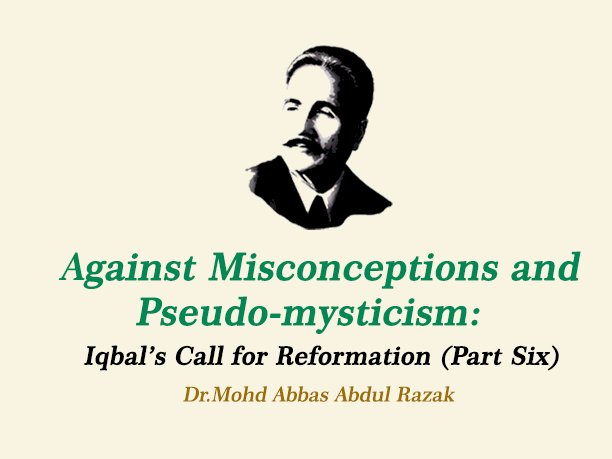


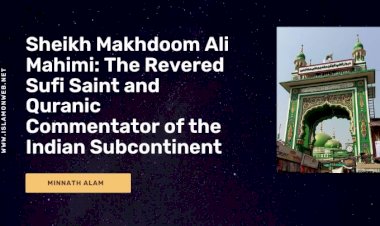
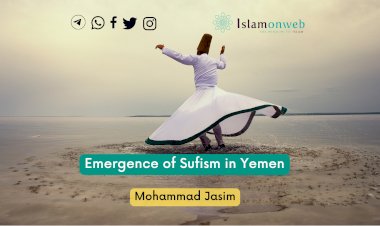

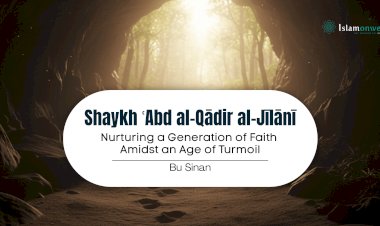
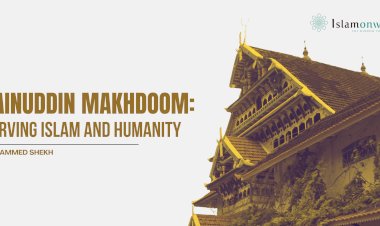
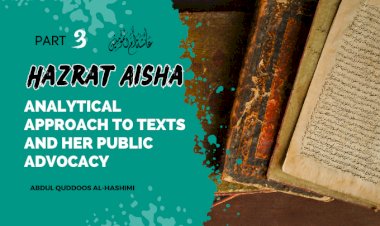














Leave A Comment